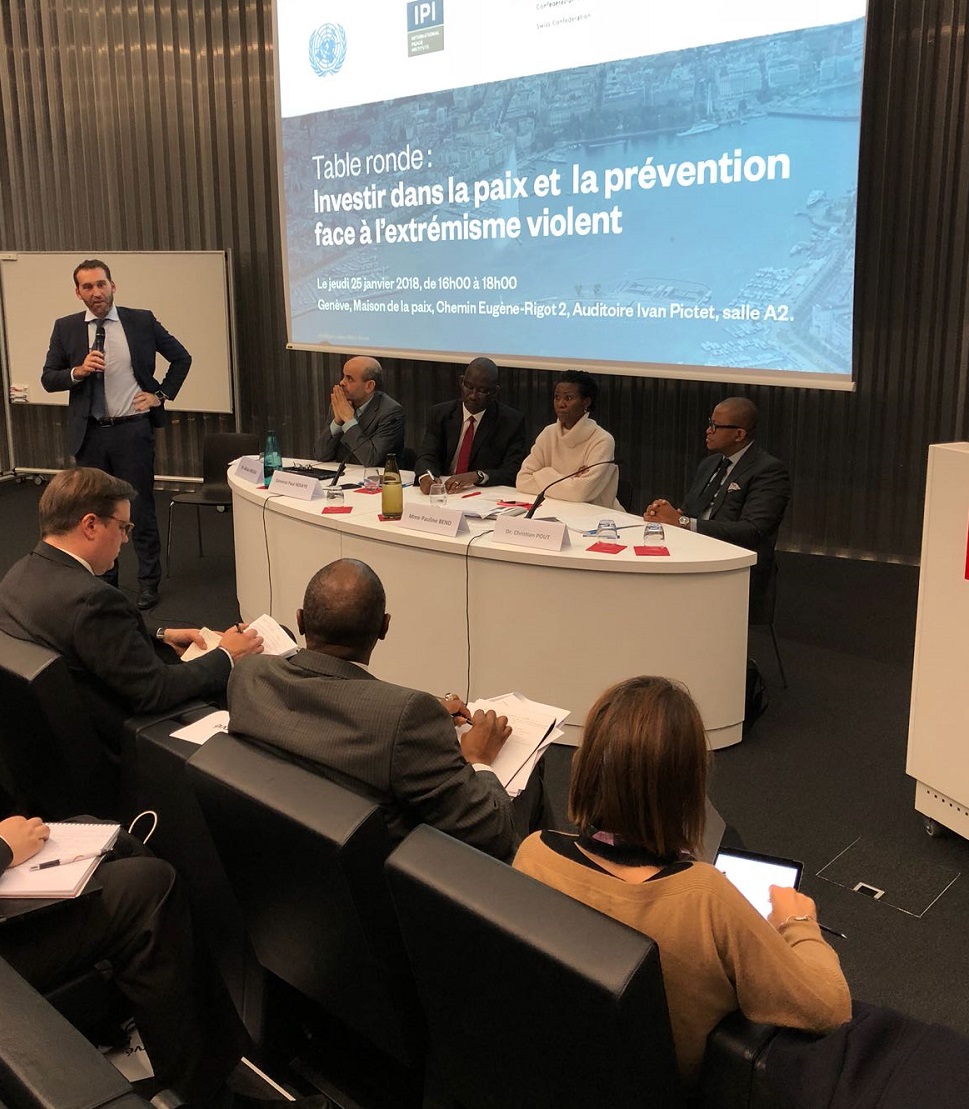Investing in peace and the prevention of violent extremism

The Sahel-Sahara region is currently facing a number of peace and security challenges that further weaken states and discourage political participation and inclusive dialogue. Furthermore, the proliferation of violent extremist groups has created a climate of fear and insecurity, which greatly impacts people’s lives, their ability to resolve conflicts and develop sustainable solutions for peace.
Following regional conversations in Dakar (2016 and 2017), N’Djamena (2017), New York (2017), and Yaoundé (2017), on the theme “Investing in peace and the prevention of violent extremism in the Sahel-Sahara region”, Interpeace, the International Institute for Peace (IPI, New York), the United Nations Office for West Africa and the Sahel (UNOWAS, Dakar) and the Swiss Federal Department of Foreign Affairs (FDFA), organized a panel event on January 25, 2018 in Geneva to discuss the conclusions and recommendations of these previous discussions.
The initiative aims at better understanding the complexities of violent extremism in the region and to learn the perception of those directly involved, in order to generate sustainable methods. By doing so, it can promote and strengthen a practical approach to the prevention of violent extremism. This multi-stakeholder and multi-disciplinary approach is key for the development of national policies that will prevent violent extremism at the governmental, community, individual and regional level.
The panel event held on January 25, gathered 50 diplomats, representatives of UN agencies, NGOs, research and training centers, as well as think tanks and universities from several sectors of activity dealing with violent extremism: politics, army, media, civil society, research and religion. Scott M. Weber, Director-General of Interpeace, gave the introductory remarks and highlighted that exclusion is at the center of the dynamics of violence. Therefore, "to fight the violence of extremism, we must fight the violence of exclusion".
Panelists agreed that regional dialogues and long-term political commitments are needed to support peace actors and further the development of violence prevention. For Abbas Aroua, Director of the Cordoba Foundation in Geneva, it is crucial to work with religious entities that are recognized for their theological knowledge: what are the differences and the links between extremism, radicalism and violence? Ms. Pauline Bend, Director of the Fondation Hirondelle office in Niamey (Niger), highlighted that professional journalism that shows all points of view, is attentive to the use of non-stigmatizing words, and carries messages of tolerance and human dignity, is essential to the consolidation of a social contract. Moreover, Mr. Kouider Zerrouk, Head of Communication and Public Information of UNOWAS (Dakar), highlighted that citizens must be at the center of the actions that are developed by the State.
Participants emphasized that working on the prevention of violent extremism in the region is no longer an option, but a necessity. Therefore, joint action and a deep understanding of each context is needed to develop a better future for the people in the region. As a result, an evaluation of the work that has been gathered in the past two years will be integrated with the new ideas proposed to further the work on a long-term response to violent extremism.
For a more detailed reflection of the panel event in French, go Cliquez ici.

Panel event held on January 25, 2018 in Geneva.
